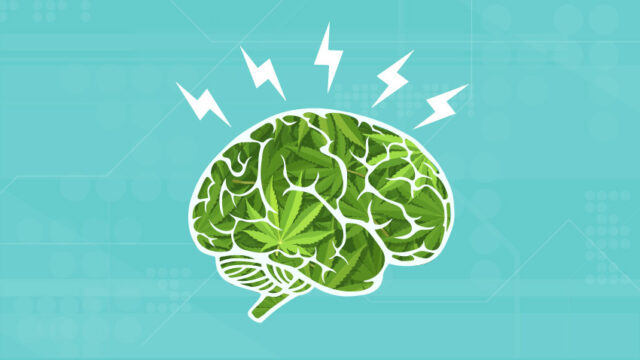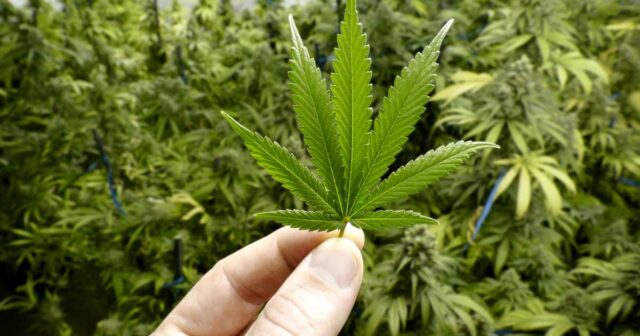
With a global average of 7.6% in 2025, Statista has rated cannabis as the most widely used drug in the world. Within the UK, cannabis users have increased from 23.6% to approximately 30% between the year 2001 to 2020. It is a noteworthy increase, considering that the drug remains illegal within the UK.
For this article, we spoke with a leading cannabis addiction treatment centre in the UK to gain valuable insights and expert opinions, as well as universally available statistics and data from multiple, scientific resources. Read more at https://providenceproject.org/drug-rehab/cannabis-rehab/
What Is the Situation as of 2025?
These numbers tell us that cannabis remains one of the most famous and widely consumed plant-based drugs. Its users have given it many names including marijuana, weed, grass, pot, and mary jane among others. The “high” from cannabis is described as a euphoria that allows the brain cells to relax. This is one of the major motivators for young individuals to try this drug. For many of these individuals, consuming marijuana begins as an occasional leisurely activity.
However, cannabis addiction is not uncommon and has given way to terms such as “wake and bake” which means smoking marijuana as soon as you wake up. Let’s look into how addictive cannabis can be, its symptoms, and how can one recover from its use.
How Is Cannabis Addictive?
Scientifically, cannabis is a psychoactive plant that increases the production of dopamine in the body. Dopamine is a feel-good chemical and, for this reason, cannabis is the most used drug in the UK. It is highly addictive and is consumed in several forms including scented candles, edibles, rolled cigarettes, pipes, and more.
For new consumers, a few drags will be enough to experience the high. With time, you develop a higher tolerance for it, as is the case with most other drugs, and have to increase its consumption to achieve the same high as before.
Because it’s so easily accessible, and because the release of chemicals can be so euphoric, cannabis users can become addicted to it.
It is also common for cannabis consumers to pair it with other substances. For example, it isn’t rare for people to enjoy a few glasses of their choice of alcohol, and light a joint at the same time. Similarly, when on MDMA or LSD, people find it acceptable and harmless to smoke weed as it intensifies the high from the other drugs.
This makes cannabis more desired, and an add-on choice rather than the sole drug of consumption when indulging.
What are the Symptoms of Cannabis Addiction?

The feeling of “high” and the euphoria that is experienced when using cannabis is essentially the over-activeness of the tetrahydrocannabinol (THC) chemical in the body. The chemical imbalance, and the high levels of dopamine, cause the body to withdraw and make the mind numb.
The combination of it causes the brain to:
- Lose focus and zone out
- Have trouble remembering events, details, or even conversations
- Lack of attention, and the ability to think and take decisions
- Experience a change in the overall mood
- Have low levels of energy and interest
- Feel dizzy, and lethargic
- Have an imbalanced appetite (eating too little or too much)
Over time, a person who is addicted to cannabis, will not be able to function healthily, will show signs of restlessness, have difficulty sleeping or following a schedule, and eventually show little to no interest in connections and conversations.
Sudden weight gain/loss is another symptom to look out for.
How does Cannabis Affect Mental Health?
This feel-good plant, regardless of how it is consumed, affects brain cells that are responsible for the neural communication of our mind with the body.
When cannabis enters the body, it activates cannabinoid receptors in the brain. The body does not need marijuana to activate this function. It naturally exists in the human body and gets activated when the body itself produces THC-like chemicals as part of its natural function.
Research shows that consistent use of cannabis decreases the quality of life, lowers emotional satisfaction, and exacerbates irritability. The Centre for Disease Control and Prevention has also affirmed that marijuana addiction causes cause paranoia and develop psychosis.
How Can You Detox from Cannabis Addiction?

Over time, the body becomes used to higher levels of THC chemicals which is why the detoxification process comes with its own physical and emotional difficulties.
However, the experts at the UK Addiction Treatment Centre say that the detoxification process is doable. Those who are taking care of their loved ones during the detox process must note that it is completely normal for the recovering individual to experience stomach aches, nausea, agitation, depression, anger, and loss of sleep.
Depending on where you live in the UK, the best is to consult with a local rehab centre or a physician who has the person’s health history. The experts at these facilities can prescribe medication that can make detoxification easier.
Additionally, opting for a nutritious meal plan will restore the body’s metabolism and ingest feel-good emotions.
How Can Rehabilitation Help Beat a Cannabis Addiction?
Cannabis addiction is viewed and treated similarly to other substances. Benefits to quitting weed are numerous and recovery is possible, provided that the person struggling with addiction seeks needful care, and is supported by their loved ones.
Rehab centres have the necessary mechanism in place and an encouraging environment that allows a person with an addiction to experience a sense of belonging and enter a process of healing.
Different rehab centres have different programs. The duration and cost depend on the severity of the case. Some options for rehab include:
- Therapy: Seeking therapy during this time is strongly recommended and has proven beneficial for most recovering individuals.
- Day-Care: This allows for people to make use of a rehab facility flexibly to promote long-term continued recovery.
- Residential Rehabilitation: These drug rehab programmes are for those severely affected by cannabis addiction and/or those who have had many failed attempts.
Summary

Cannabis is the highest consumed drug hence cannabis addiction is becoming more common every day.
#1 Individuals often begin consuming cannabis in their teens and may quickly become addicted.
#2 Cannabis boosts dopamine in the body and is a feel-good substance that can excessively activate THC chemicals in the body.
#3 Over-activation of THC causes the body to slow down its natural functioning, making a person feel physically drained and emotionally numb.
#4 Addiction to cannabis has mental, emotional, and physical health side effects.
#5 Recovery from cannabis is possible, provided that the person struggling with addiction receives appropriate and timely care.












